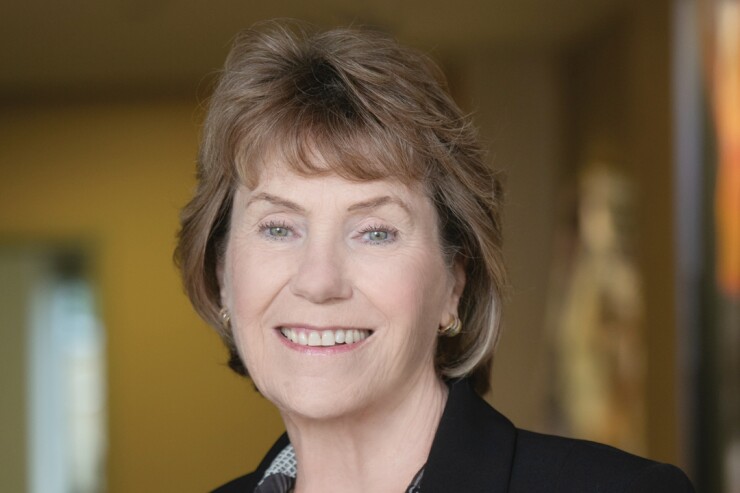
EagleBank, of Bethesda, Maryland, specializes in commercial real estate lending. For most of its history, said president and CEO Susan Riel, that's been a profitable part of the business.
"It's made us one of the top-performing banks in the country," she said. "Between 2016 and 2022, we averaged being in the 83rd percentile in return on average assets (ROAA) of all the about 4,600 depository institutions in the U.S."
But during what Riel calls 2023's "whole-industry chaos," commercial real estate lending has taken a beating and EagleBank has felt the impact of those blows. "Our non-owner occupied CRE loan book represents approximately two-thirds of our total loans," Riel said.
Now it's Riel's job to help the bank navigate these tumultuous times.
Rising interest rates, inflation and low retail and office occupancy in the wake of the pandemic have hurt the commercial real estate market substantially. Some borrowers are unable to make their payments. Others have the financial flexibility to avoid borrowing at current rates and they're waiting on the sidelines, hoping rates will come down.
"Not a lot of people are buying commercial real estate," Riel said. "Values are going down and people are waiting to hit the bottom. Class A buildings are getting leases, because tenants can get Class A buildings for the price of Class B or C. The B and C buildings are the problem."
Higher rates have also pushed deposit costs up, particularly amid the fierce competition for deposits that followed the bank failures of Silicon Valley Bank, First Republic and Signature Bank in March.
These factors forced Eagle to close two of its less trafficked branches in the Georgetown neighborhood of Washington, D.C., and in Chantilly, Virginia, reducing its brick-and-mortar presence to 13 branches. That has saved the bank $408,000 a year in rent, she said.
And while Riel said the bank has tried to place employees affected by those branch closures in new roles, there will also be some job cuts. The bank has said it is planning an unspecified number of layoffs that will generate an additional savings of $2.4 million in the second half of 2023, plus another $5.8 million in 2024, according to Riel.
Despite the hurdles the bank has faced over the last year, Riel said there have been some bright spots.
"Relationships with customers have improved over the last year. We kept in touch through COVID and now we're getting back to having lunches and meeting people in person," she said.
Riel said that she doesn't plan to change Eagle's basic business model, but hopes to expand the consumer business by growing its digital presence.
Eagle will also carefully examine which bank branches people use most and will likely adjust its branch presence accordingly.
It's tough to know when the commercial real estate market will turn around.
"We'll still be feeling the effects of this for a while," Riel said. "Some loans aren't due yet and some tenants have leases that haven't run out yet."
She said Eagle is looking at each loan to see where challenges might lie and will work with borrowers where they can. "We have a lot of capital, and we'll get through this," she said.





